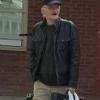





Gary Webb, Pulitzer Prize-Winning Reporter, Driven To His Death By CIA
gary webb dark alliance cia mockingbird cocaine crack
.
.
"We live in a dirty and dangerous world. There are some things the general public does not need to know, and shouldn't."
.
Katharine Graham, Publisher, Washington Post,
Speech to the CIA, 1988
.
.
"He was the best investigate reporter I've ever known."
.
.Charles Bowden, Essayist and Author
.
.
In 1996 Pulitzer Prize winning journalist Gary Webb wrote "Dark Alliance," a hard-hitting series for the
San Jose Mercury News, exposing how the CIA imported cocaine to be sold in South Central L.A. In spite of reams of evidence, he was forced to leave his job. He wrote a book about the subject also called Dark Alliance. In 2004 he was found dead of an apparent suicide. He was 49 years old. A movie about Gary Webb, Kill the Messenger, came out on Friday, October 10th, 2014.
[Problems with line spacing in this article are caused by glitches in the software here. It also underlines the word "book" and links it to this same article.]
Find the "Dark Alliance" series and some follow up material here:
.
http://www.mega.nu/ampp/webb.html
According to an interview Gary Webb gave to Democracy Now while he was alive, a prosecutor who was looking into CIA cocaine dealing was found dead of an apparent suicide, shot in the head. According to the same interview, a former Contra turned whistleblower was found dead of an apparent drug overdose after predicting the CIA might stage such an incident.
.
The book the movie is based on, also called Kill the Messenger, said he did commit suicide. The book was written by Nick Schou. Orange County Weekly's online index shows articles by Nick Schou going back to 1998.
http://www.ocweekly....w-of-suspicion/
In a recent article there he says he started there in 1996. OC Weekly's website says he has earned the following awards:
.
2013 - Southern California Journalism Awards/LA Press Club
"The King of Cool, Don Winslow"
2012 - Southern California Journalism Awards/LA Press Club
"Orange County Jail Deaths"
2011 - AAN AltWeekly Awards, published July 29, 2010
"Don't Start a Riot"
.
Kill the Messenger says Gary Webb told people close to him he was having problems or was suicidal and that he left a note and mailed letters to that effect. The author refers to interviews with all the people close to Gary Webb. He says Gary had a history of depression. According to the book Gary was functional until he lost his career because of the engineered backlash to his work. According to the book, the coroner also found that his death was suicide. Gary Webb was shot twice in the face, once in the cheek, but that apparently failed, so he shot himself again and bled out.
.
Learn more about Gary Webb here:
http://www.democracy...iance_gary_webb
http://www.democracy...iance_gary_webb
Alexander Cockburn wrote about Gary Webb's death in the Nation.
http://www.thenation...-better-he-got#
I think there is a documentary called Shadows of Liberty about him. He also published a book called Into the Buzzsaw about journalists who pissed off the powers that be by actually doing their jobs. The book Whiteout by Alexander Cockburn and Jeffrey St. Clair goes into Gary's story, among other things.
The criticisms of Gary's series don't seem to me to have any merit. They were clearly engineered by the CIA to take the heat off themselves. It was because he was such a fine journalist that they went after him. The CIA has infiltrated major media for years. One such project was called "Project Mockingbird." It's just shameful that other journalists and editors didn't see through that.
From Wikipedia:
[Bolding added by me. Anything in blue added by me. The rest of it is by the author. ]
http://en.wikipedia....ion_Mockingbird
Operation Mockingbird
.
Operation Mockingbird was a secret campaign by the United States Central Intelligence Agency (CIA) to influence media. Begun in the 1950s . . . The organization recruited leading American journalists into a network to help present the CIA's views, and funded some student and cultural organizations, and magazines as fronts. As it developed, it also worked to influence foreign media and political campaigns . . .
. . . in 1966 Ramparts magazine published an article revealing that the National Student Association was funded by the CIA. The United States Congress investigated, and published its report in 1976. Other accounts were also published. The media operation was first called Mockingbird in Deborah Davis's 1979 book, Katharine the Great: Katharine Graham and her Washington Post Empire.[1]
. . . [The CIA] recruited Philip Graham from The Washington Post to run the project [Mockingbird] within the industry. According to Deborah Davis in Katharine the Great; "By the early 1950s, Wisner 'owned' respected members of The New York Times, Newsweek, CBS and other communications vehicles."[3] . . .
After 1953 . . . Operation Mockingbird had a major influence over 25 newspapers and wire agencies. The usual methodology was placing reports developed from intelligence provided by the CIA to witting or unwitting reporters. Those reports would then be repeated or cited by the preceding reporters which in turn would then be cited throughout the media wire services. These networks were run by people with well-known liberal but pro-American big business and anti-Soviet views such as William Paley (CBS), Henry Luce (Time and Life Magazine), Arthur Hays Sulzberger (New York Times), Alfred Friendly (managing editor of the Washington Post), Jerry O'Leary (Washington Star), Hal Hendrix (Miami News), Barry Bingham, Sr. (Louisville Courier-Journal), James Copley (Copley News Services) and Joseph Harrison (Christian Science Monitor).[7]
. . . money was used to bribe journalists and publishers.
.
According to Alex Constantine (Mockingbird: The Subversion of the Free Press by the CIA), in the 1950s, "some 3,000 salaried and contract CIA employees were eventually engaged in propaganda efforts". [The CIA] was able to constrain newspapers from reporting about certain events, including the CIA plots to overthrow the governments of Iran (see: Operation Ajax) and Guatemala (see: Operation PBSUCCESS).[9]
Thomas Braden, head of the International Organizations Division (IOD), played an important role in Operation Mockingbird. Many years later he revealed his role in these events:
"If the director of CIA wanted to extend a present, say, to someone in Europe—a Labour leader—suppose he just thought, This man can use fifty thousand dollars, he's working well and doing a good job - he could hand it to him and never have to account to anybody. . . There was simply no limit to the money it could spend and no limit to the people it could hire and no limit to the activities it could decide were necessary to conduct the war—the secret war . . . It was a multinational. Maybe it was one of the first. Journalists were a target, labor unions a particular target . . . [10]
. . . Guatemala: Mockingbird was very active during the overthrow of President Jacobo Arbenz Guzmán in Guatemala during Operation PBSUCCESS. Dulles restrained certain journalists from traveling to Guatemala, including Sydney Gruson of the New York Times.[15] . . .
[A report produced by the Eisenhower administration was] highly critical of Mockingbird. . . . "what right have we to go barging around in other countries buying newspapers and handing money to opposition parties or supporting a candidate for this, that, or the other office."[16]
. . . in 1962, . . . According to Evan Thomas in his book, The Very Best Men (1995), . . . [Mockingbird] planted editorials about political candidates who were regarded as pro-CIA.
In 1964, Random House published Invisible Government by David Wise and Thomas Ross. The book exposed the role of the CIA in foreign policy. . . . The CIA considered buying up the entire printing of Invisible Government but this idea was rejected when Random House pointed out that if this happened they would have to print a second edition.[2]
John McCone, the new director of the CIA, tried to prevent Edward Yates from making a documentary on the CIA for the National Broadcasting Company (NBC). This attempt at censorship failed, and NBC broadcast this critical documentary.
At the end of 1966, [the CIA] learned that Ramparts, another CIA backed left-wing publication, [what?] had discovered that the CIA had been secretly funding the National Student Association and was considering publishing an account.[17] When the magazine advised the CIA it had "lost control of the information," and would likely be forced to publicize, FitzGerald ordered a plan to either neutralize the campaign and/or wind-down Mockingbird. [Sure they did.]
[The CIA] appointed Edgar Applewhite to organize a campaign against Ramparts. Applewhite later told Evan Thomas for his book, The Very Best Men: "I had all sorts of dirty tricks to hurt their circulation and financing. The people running Ramparts were vulnerable to blackmail. We had awful things in mind, some of which we carried off."[18]
Ramparts publishing the account in March 1967. The article, written by Sol Stern, was entitled NSA and the CIA.[citation needed] . . . [It detailed] funding of the literary journal Encounter.[10] Applewhite managed to control some of the account by steering references away from leftist organizations and toward most of the few conservative organizations backed by the CIA. Those organizations named in the article were not ones that could not be linked to Ramparts, itself a CIA proprietary organization. [I remember Ramparts. I find it hard to believe it had links to the CIA]
In May 1967, Thomas Braden published "I'm Glad the CIA is 'Immoral'", in the Saturday Evening Post. He defended the activities of the International Organizations Division unit of the CIA. Braden said that the CIA had kept these activities secret from Congress. As he wrote: "In the early 1950s, when the Cold War was really hot, the idea that Congress would have approved many of our projects was about as likely as the John Birch Society's approving Medicare."[19]
. . . [the CIA] in 1972 was accused of interfering with the publication of a book, The Politics of Heroin in Southeast Asia by Alfred W. McCoy. [citation needed] The book was highly critical of the CIA's dealings with the drug traffic in Southeast Asia . . . [20]
Church Committee Investigations
Further details of Operation Mockingbird were revealed as a result of the Senator Frank Church investigations (Select Committee to Study Governmental Operations with Respect to Intelligence Activities) in 1975. According to the Congress report published in 1976:
"The CIA currently maintains a network of several hundred foreign individuals around the world who provide intelligence for the CIA and at times attempt to influence opinion through the use of covert propaganda. These individuals provide the CIA with direct access to a large number of newspapers and periodicals, scores of press services and news agencies, radio and television stations, commercial book publishers, and other foreign media outlets."
Church argued that misinforming the world cost American taxpayers an estimated $265 million a year.[21]
In February 1976, George H. W. Bush, the recently appointed Director of the CIA, announced a new policy: "Effective immediately, the CIA will not enter into any paid or contract relationship with any full-time or part-time news correspondent accredited by any U.S. news service, newspaper, periodical, radio or television network or station." [Sure . . . I believe that.] He added that the CIA would continue to "welcome" the voluntary, unpaid cooperation of journalists.[22]
http://en.wikipedia....ion_Mockingbird
.
The following excerpt from "Managing A Nightmare: How The CIA Watched Over The Destruction of Gary Webb" by Ryan Deveraux in The Intercept tells the story [Bolding added by me. Anything in blue by me.]
https://firstlook.or...tion-gary-webb/
On September 18, [2014] the agency released a . . . six-page article titled “Managing a Nightmare: CIA Public Affairs and the Drug Conspiracy Story.” . . . Thanks in part to what author Nicholas Dujmovic, a CIA Directorate of Intelligence staffer at the time of publication, describes as “a ground base of already productive relations with journalists,” the CIA’s Public Affairs officers watched with relief as the largest newspapers in the country rescued the agency from disaster, and, in the process, destroyed the reputation of an aggressive, award-winning reporter. . .
.
. . . The Los Angeles Times was especially aggressive. Scooped in its own backyard, the California paper assigned no fewer than 17 reporters to pick apart Webb’s reporting. While employees denied an outright effort to attack the Mercury News, one of the 17 referred to it as the “get Gary Webb team.” Another said at the time, “We’re going to take away that guy’s Pulitzer,” according to Kornbluh’s CJR [Columbia Journalism Review's] piece. Within two months of the publication of “Dark Alliance,” the L.A. Times devoted more words to dismantling its competitor’s breakout hit than comprised the series itself.
The CIA watched these developments closely, collaborating where it could with outlets who wanted to challenge Webb’s reporting. . . . Dujmovic . . . cites the CIA’s success in discouraging “one major news affiliate” from covering the story. He also boasts that the agency effectively departed from its own longstanding policies in order to discredit the series. “For example, in order to help a journalist working on a story that would undermine the Mercury News allegations, Public Affairs was able to deny any affiliation of a particular individual — which is a rare exception to the general policy that CIA does not comment on any individual’s alleged CIA ties.”
The document chronicles the shift in public opinion as it moved in favor of the CIA . . . “[r]espected columnists, including prominent blacks,” along with the New York Daily News, the Baltimore Sun, The Weekly Standard and the Washington Post. The agency supplied the press, “as well as former Agency officials, who were themselves representing the Agency in interviews with the media,” with “these more balanced stories,” Dujmovic wrote. The Washington Post proved particularly useful. “Because of the Post‘s national reputation, its articles especially were picked up by other papers, helping to create what the Associated Press called a ‘firestorm of reaction’ against the San Jose Mercury News.” Over the month that followed, critical media coverage of the series (“balanced reporting”) far outnumbered supportive stories, a trend the CIA credited to the Post, The New York Times, “and especially the Los Angeles Times.” Webb’s editors began to distance themselves from their reporter. . .
[Columbia Journalism Review's Kornbluh claimed there were problems with Webb's series but he] also uncovered problems with the retaliatory reports described as “balanced” by the CIA. In the case of the L.A. Times, he wrote, the paper “stumbled into some of the same problems of hyperbole, selectivity, and credibility that it was attempting to expose” while ignoring declassified evidence (also neglected by the New York Times and the Washington Post) that lent credibility to Webb’s thesis. “Clearly, there was room to advance the contra/drug/CIA story rather than simply denounce it,” Kornbluh wrote. . .
[Nick Schou, author of Kill the Messenger says there were some problems with Gary's series], but maintains that the most important components of his investigation stood up to scrutiny, only to be buried under the attacks from the nation’s biggest papers. [I find no problems with Gary's reporting.]
.
Read this excerpt from the 1991 “Task Force Report on Greater CIA Openness,” compiled by the CIA [emphasis added]:
[The CIA] now has relationships with reporters from every major wire service, newspaper, news weekly, and television network in the nation, [enabling them to] turn some ‘intelligence failure’ stories into ‘intelligence success’ stories, and has contributed to the accuracy of countless others.” [The CIA has] persuaded reporters to postpone, change, hold, or even scrap stories that could have adversely affected national security interests…
.
Tom Loftus, one of Gary's friends from the Kentucky Post, was quoted in Kill the Messenger, "I've never seen an investigative project come under fire like 'Dark Alliance.' It just hasn't happened before or since."
Was the takedown of Gary Webb due to jealousy and laziness in his colleagues? Although here's plenty of those in the newspaper industry, I believe that this was a CIA operation, bought and paid for. They'd had people in place within the media to do their bidding since the fifties. They knowingly placed people at the three pillars of the newspaper industry; the New York Times, the Washington Post and the L.A. Times, as well as CBS. I don't know if Gary Webb killed himself. I hope so. The timing was off for it to be murder, unless he was working on something threatening to some elements in the federal government and I haven't read anything about that. There is what seems to be a sympathetic account of his story by Nick Schou, who seems to have had access to people close to him. He reports that they all say he was troubled. There was the way be killed himself which seems unusual, although I'm not a coroner. Gary seems to have planned his death but shot himself in a spot that would have been unreliable at best. He was experienced with guns. He spent his whole life doing research. I wonder if the coroner's report was looked at and if the coroner was looked into. It would have been good to show this stuff in the book. Would have been good to offer more proof that Gary's family and friends said what they said, given the nature of this story.
.
I'm sorry that Gary Webb isn't here now and that I never met him. He will be remembered as an outstanding journalist and a man of great courage. There was no merit to the criticisms of his work, then or now. Those who took him down will be forever viewed as traitors and cowards who drove a fine reporter to his death.




















































